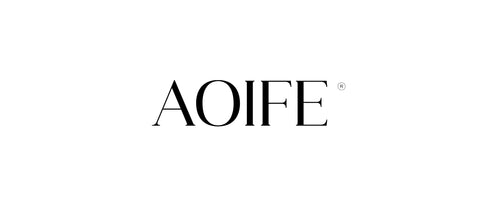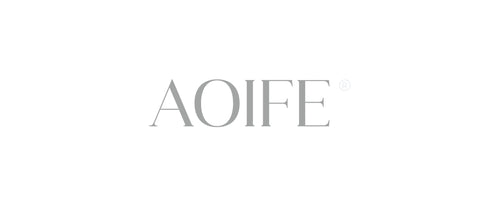If you are following @aoifelifestyle on our social media platforms you’ve probably heard us talk a lot about sustainability and circular fashion.Fashion and the world are changing fast, new generations are demanding sustainable products, customers are looking for transparency and we at aoife ® are offering both.
According to Ellen MacArthur Foundation, a circular economy is based on three principles: designing out waste and pollution, keeping products and materials in use at the highest possible value, and regenerating natural systems. These principles are so incredibly important for the eradication of present issues in the fashion industry. The majority of textile production is an example of one of these pressing issues, but controversy over such an impending topic is not going to help towards a fundamental shift in the industry.

A valuable change in production has to be restored, regenerated and redesigned at the design table, we need to consider what will happen when clothes and accessories cannot be used anymore. By developing efficient recycling processes and improving the quality of recycling we can contribute to the solution of waste. Less than 1% of material used to produce clothing is recycled into new clothing1, this is a system that we can only stop with a circular economy. Economic and social development can only happen in a way that the planet can afford, and that is what we are trying to accomplish here at a o i f e ®.
Once you understand the destruction taking place, unless you do something to change it, even if you never intended to cause such destruction, you become involved in a strategy of tragedy. You can continue to be engaged in that strategy of tragedy, or you can design and implement a strategy of change.2

A linear economy is the complete opposite of a circular economy. Linear systems puts pressure on resources, pollutes and degrades the natural environment and its ecosystems. This type of production can cause huge damage to our planet because there is no concern as to where the product will eventually end up after it is used .a o i f e ® is striving to ensure that we are creating luxury accessories with no harm towards the environment, we are trying to break the destructive cycle of waste and change the linear economy for the better.
The economic opportunities are infinite if we allow ourselves to think out of the box. We need to be innovative, creative and circular to redefine the fashion world, removing waste from landfills and incineration to recreating them into beautiful fashion pieces. At a o i f e ®, we use pure materials that are created for the circular economy that are either regenerated or biological and naturally biodegradable-which can safely decompose. We need you to do the research before you go shopping and choose designers who have zero-waste goals and initiatives to use fabrics like we do that are recyclable.
So-called ‘circular’ approaches – to the city, the economy, design – extend well beyond just limiting environmental impacts. They take on a more systemic, cyclical view of how physical and biological processes, together with human interactions, give rise to sustainable living environments – forming a complete self-sustaining ‘ecosystem’, like a closed circle.?3

a o i f e ® recently completed an awarded certificate with IDCEC, held in New York,in designing for a circular economy, we met with the global network of designers for change and collectively understand that there is only one way forward in the fashion industry and that is working collaboratively, praticising globally interdependence with people who share the same mindset. Our creative potential at a o i f e ® shows throughout our products because of our modern, innovative and sustainable approach to fashion. We ensure that people we collaborate with want to reach the same goal with us. The fashion industry and the consumer needs to start working together to modify textile production from a linear system to a circular system. Together with you, our customers, we can champion a sustainable future.
Written by Hannah Rooney



